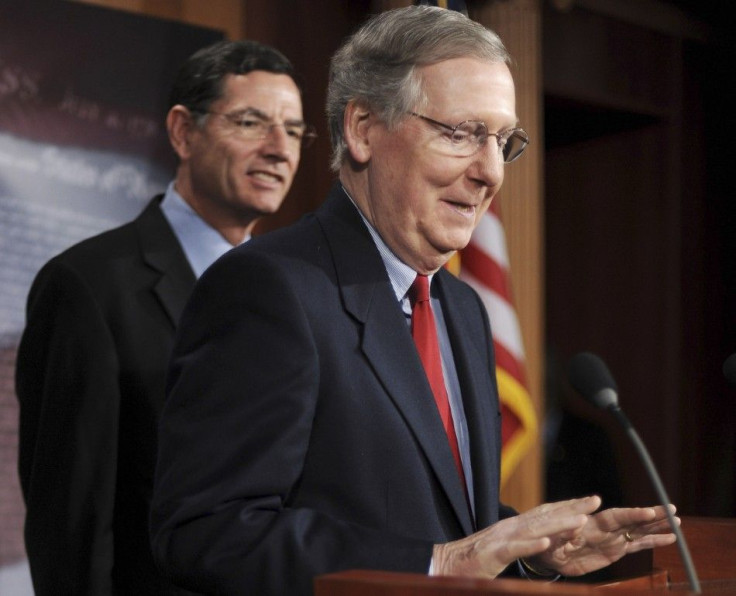Debt Talks Confirm it - Republicans Have Lost Their Minds
Column

In 2010, Republicans swept into power and immediately claimed a resounding mandate from voters: They had been sent to Washington to fix things, to make government serve the people and to revitalize a still-ailing economy.
Less than a year later, a drastic rightward shift driven by an influx of Tea Party ideologues has put the lie to the notion that the Republican party serves anything but an immovable partisan platform. Even David Brooks, that stalwart defender of the center-right, denounced the sordid state of the debt talks by musing that the GOP may no longer be a normal party.
Republicans spent the 2010 election season railing against government irresponsibility and repeated over and over again that taming a ballooning deficit was the paramount task. Last week, President Obama called their bluff. He offered a package that would reduce the deficit by $4 trillion, a vastly larger number than the target Republicans were seeking, and he signaled a willingness to sacrifice his sacred cows by agreeing to cuts to Social Security and Medicare, a fundamental government shield for the elderly and the vulnerable that are typically inviolable to Democrats. But Republicans would have had to agree to new revenue, so predictably they balked.
Why? Because the Republican party today is one where ideological purity trumps any spirit of compromise or pragmatism, where a president offering a bargain with elements deeply unpalatable to his base is dismissed as the main obstacle to striking a deal. That is absurd. Throughout his term Obama has been a politician's politician, putting aside principles to eke out whatever agreements he can. The real impediment to progress is the fact that, for today's Republicans, the only important thing is winning.
In this case, winning means refusing to budge whatsoever, particularly on the discredited policies that have become indispensable parts of the Republican platform. Federal taxes are currently at their lowest level relative to the economy since 1950. The Bush-era tax cuts were an unambiguously disastrous mistake; a return to Clinton-era tax rates would go a long way toward narrowing the gulf between government spending and government revenue.
That doesn't matter. Eric Cantor, whose complete intractability on everything allowed him to seize control of the debate from somewhat-reasonable House Speaker John Boehner, walked out of earlier meetings in which Democrats sought new sources of revenue. No matter which tax breaks Democrats are looking to eliminate, or what they offer in return, the GOP response is about the same as a small child covering its ears and shouting No, no, no! Or in this case, repeating the mantra that Democrats are seeking to tax the job creators -- one assumes these mysterious job creators are different from the top earners who have continued to thrive, their Bush-era tax breaks intact, while unemployment lingers and wages stagnate.
But Republicans do not care about those people who are waiting for the top-down recovery to make it to the down part, who may yet see their Social Security benefits slashed in the name of healing the economy. All they care about is winning. Washington has become about gamemanship, sound bytes and litmus tests of partisan credentials. The American people are still waiting.
© Copyright IBTimes 2024. All rights reserved.




















